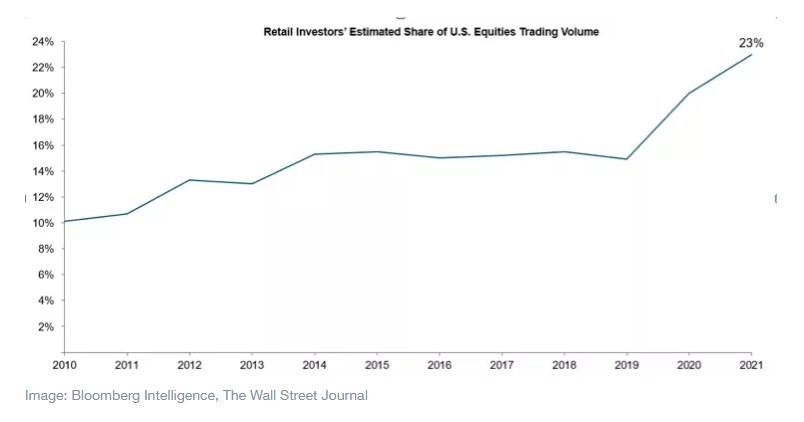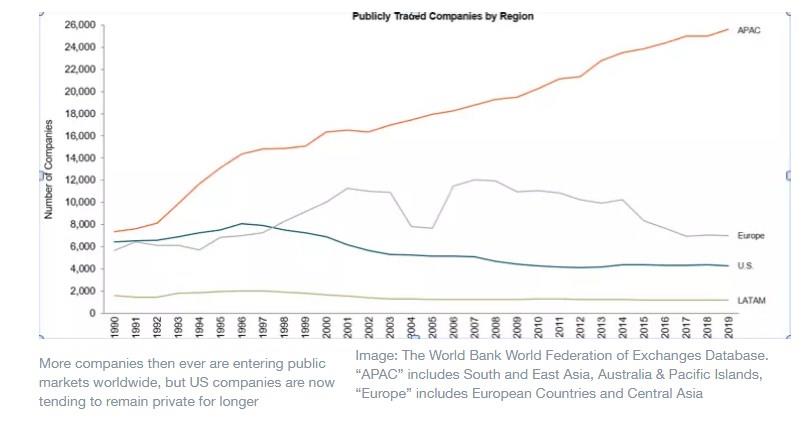by Matthew Blake and Akash Shah*
In the wake of the pandemic and an unequal economic recovery, several interrelated forces are transforming the way global capital markets work. As the world’s economies rebound, market participants broadly recognize a need for reforms to the established modus operandi, to build resilience, to remain competitive in the face of innovation, and to retain their customers’ trust.
The World Economic Forum’s platform on Shaping the Future of Financial and Monetary systems, in collaboration with BNY Mellon, will launch a new series of multi-stakeholder conversations on the future of capital markets. The project aims to help financial market participants to better understand the dynamics shaping the future of capital markets, while strengthening trust in the system. The following six areas will be central to the discussion:
1. Democratization of public markets
In January, a contingent of retail traders (non-professional traders) on Reddit’s WallStreetBets launched the equivalent of a market revolt by drastically influencing the prices of several publicly-traded companies. These episodes cost hedge funds and professional investors – many of whom had been betting against these same stocks – billions of dollars, and raised questions about market practices and resilience.
Historically, access to capital markets was highly mediated, available only to institutions or individuals who had the time, money and resources to manage their assets with the help of brokers and financial advisors. Today, market data is readily accessible online and new technologies have significantly reduced the cost of trading and other barriers to entry. This means that more people can trade, at any time, from anywhere.

Retail investors now make up an estimated 23% of US equity trading volume, which represents more than a two-fold increase since 2010. Increased access to markets is a positive development, but it is not without risk. It raises important questions about market and institutional resilience, and investor safeguards, as well as opening a broader discussion on financial education.
2. Greater access to new wealth creation opportunities
Private market investment opportunities, with their more lucrative return profiles, were historically available only to institutional and accredited investors. This exclusive access was based on a perceived level of sophistication and risk management expertise among these investors. Today, new products are being developed that allow retail investors to allocate capital to private market alternatives.
Here again, challenges surface when opening these products to a larger community of investors. People need to know about the associated risks, which differ materially from investing in traditional stocks and bonds.
3. Blurring of public and private markets
More companies than ever before are entering public markets worldwide, and yet in the United States we are seeing firms remain private for longer, and others electing to transition from public to private. This trend is fuelled by heightened disclosure requirements and regulatory scrutiny for publicly-held firms, as well as investor eagerness to fund private companies. Firms are also exploring other avenues to raise capital and reduce dependency on equity markets.

More recently, we have seen a burgeoning market for special purpose acquisitions companies (SPACs) as an alternative route to the traditional Initial Public Offering (IPO). Many businesses have turned to SPACs as a means of streamlining the process of raising capital in public markets, but increased competition and potential regulatory scrutiny have raised questions around their future.
4. Concerns around data and cyber security
Capital markets processes have become more digital as market participants demand faster execution speeds and seamless access to information. These technologies accelerate changes in the industry, but also raise concerns around cybersecurity and data protection.
Data is emerging as its own asset class, and data management infrastructure is a key growth area for traditional financial firms. Institutions are actively seeking ways to leverage analytics to remain nimble and promote growth.
The World Economic Forum’s FinCyber initiative, in partnership with the Carnegie Endowment for International Peace, is working to connect the industry’s various cybersecurity initiatives. But questions remain around how firms can innovate safely, benefiting from a more agile use of data while mitigating risks.
5. New roles for financial firms
Some functions traditionally performed by large financial firms are being performed by a new set of competitors. As a result, institutions across the value chain are redefining their roles, taking on new responsibilities, partnering with new technology providers, and introducing new ways of operating in order to keep pace with their clients’ needs.
As of 2020, 250 of the top private fintech startups internationally had raised nearly $50 billion in aggregate funding. These platforms often provide complementary services to those offered by legacy institutions, presenting new chances for collaboration and integration. While industry stakeholders have made substantial progress in understanding how consumer-facing fintechs are reshaping financial services, the role of fintech in institutional capital markets is less well understood.
For instance, Blockchain and distributed ledger technologies have the potential to disrupt core functions within capital markets, including trading processes, settlement systems, payments, and capital raising. At the same time, regulators and lawmakers are increasingly vocal about concerns around cryptocurrencies, raising important questions around their future viability as an asset class.
6. Transparency around ESG
ESG is a top priority for financial firms. As investors, asset owners, and corporations navigate their roles in supporting the transition to net-zero and stakeholder capitalism—including adopting consistent reporting standards around ESG metrics—significant questions remain about what market structures and tools are needed to support sustainable investing.
Why now?
We are living through a unique moment in history. The COVID-19 pandemic has forced reflection and accelerated change. Capital markets will continue to evolve, and they must do so in an inclusive and collaborative manner in order to retain public trust.
*Head of Shaping the Future of Financial& Monetary Systems, World Economic Forum and Chief Growth Officer, BNY Mellon
**first published in: www.weforum.org




 By: N. Peter Kramer
By: N. Peter Kramer
